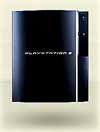Scientists in Japan have created a key component of an artificial immune system that they say functions as well as the body's natural defences against infection. In animal tests, the scientists were able to create an artificial lymph node that hosted disease-fighting cells, they report in the Journal of Clinical Investigation.
Three countries are the origin of half of all online attacks
Just three countries, the US, China and Germany, are the origin of almost half of all malicious online activity, according to Internet security firm, Symantec. The company detected more than 6 million separate 'zombies', computers controlled by malicious hackers, in the last six months of 2006, it announced.
The groups behind the attacks appear to be growing in power.
Online game cheats must pay with blood to regain accounts
An online game operator has demanded that banned players donate blood to be allowed back into the game. Moliyo, which runs a 3D massively multiplayer online game in China, made the demand after banning 120,000 players who attempted to hack the game, according to gaming news website, 17173.com.
'Astonishing' new inkjet technology – more details revealed
Update Mar 21: Silverbrook has now officially announced the Memjet printing technology. See our latest article for a new high-quality video, and news on when products are expected to become available.
Red Hat shrugs off Microsoft and Oracle competition, analysts say
Analysts expect Red Hat's launch of Red Hat Enterprise Linux 5 (RHEL5) to solidify its position as the leader in commercial open source software. Red Hat appears unaffected by competitive pressure from Microsoft and Oracle, say analysts from WS Hambrecht and Co.
“We continue to believe the release of RHEL5 should solidify Red Hat's position at the forefront of the Open Source movement,” commented Hambrecht analysts, Robert Stimson and Jason Ko in a note to investors this morning.
New software cracks Adobe PDF files in seconds, says developer that beat Adobe DMCA case
Almost all password-protected PDF files are vulnerable to new software that can crack them in seconds, developer Elcomsoft announced today. The Russian firm earlier beat legal action prompted by PDF creator, Adobe, after releasing a program to defeat e-book encryption in 2001.
Weak 40-bit encryption, which is used in “most” PDF files, according to Elcomsoft, can usually be broken in a few minutes with the most advanced version of the new software, the company claimed in a press statement released in Moscow today.
New 'high-security' phone prevents info leaks, spying... and almost everything else
A new 'secure' mobile phone designed to stop staff spying on their employers and prevent data theft was unveiled today by Japan's largest mobile phone firm. The device incorporates an unprecedented number of restrictions on its use.
Users must first prove their identity via a biometric fingerprint pad to start using the phone. Although the phone has a camera, memory slot and USB port, they are all permanently disabled, to prevent it being used to photograph documents, steal files or spread malware.
First application of 'radical' new printing technology revealed
New printing technology, described as “radically inventive” by some analysts, could replace RFID tags, according to its creators. The new technology codes objects with invisible infrared markings, which can be read by a handheld scanner or even a mobile phone.
Google tests dumbed down search service
Could Google's search interface get any simpler? Google is testing a new service that aims to make common searches even easier – after discovering that many users are confused by its basic search page. The directory-style 'Google Navigator' service being trialled in China is simply a page full of the most common search phrases.
Confused users just click on the one they want.
Fon gets $13m to continue free wifi giveaway
Free public wireless firm, FON, has received a further 10 million euro ($13.1 million) in funding from investors, the company announced today. The company did not disclose the names of new investors, but noted that existing investors include Google and Skype.
Rumors circulating in Europe's telecom industry have suggested that British Telecom (BT) may be one of the new investors.









